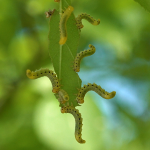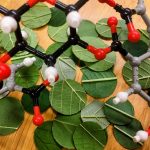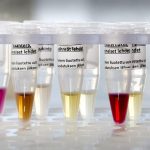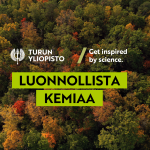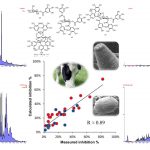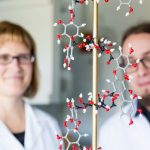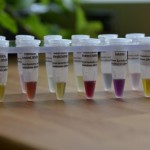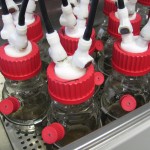MetaboKIT is an analytical tool that we offer free of charge for research groups interested in plant-herbivore interactions. With this tool we can reveal both general and specific metabolic patterns of plant defences in insect pests. With international collaboration we aim to obtain data on metabolic patterns of hundreds of species. MetaboKIT is a […]
Category Archives: Projects featured
Biodiform
The Natural Chemistry Research Group has joined the strategic research profiling project of the University of Turku called Biodiform (“Biodiversity and systemic transformation”) funded by the Acacemy of Finland for the years 2021-2026. The Natural Chemistry Research Group (University of Turku) has studied the chemical basis of multiple types of natural phenomena occurring in nature […]
ChemKing
ChemKing (“Chemical Diversity across the Plant and Insect Kingdom”, Academy of Finland project no 341836) is the latest Academy project of the Natural Chemistry Research Group. Juha-Pekka Salminen (University of Turku) leads a project that aims to develop and use new tools for accurately analysing the chemical diversity found in the plant and insect kingdom. The […]
Luonnollista kemiaa
Luonnollista kemiaa -hanke tuo kasvien kiinnostavan kemian kaikkien saataville. Hanke sai hiljattain tukirahoituksen Suomen kulttuurirahastolta. Luonnonyhdistekemian tutkimusryhmä on kehittänyt ja käyttänyt jo pitkään erilaisia analyysimenetelmiä kasvien kemian tarkkaan analysointiin. Tutkimustuloksista voi olla monenlaista hyötyä luonnon monimuotoisuuden parempaan ymmärtämiseen ja jopa luontokadon hidastamiseen. Kasvien kemian parempi ymmärtäminen voi tuoda myös lisää sisältöä ihmisten kasvaneeseen luontoharrastukseen yleisesti, […]
OptiFeed
OptiFeed (“Tannin diversity vs. reactivity: optimizing positive impacts of ruminant feed components”, Academy of Finland project no 298177) is the latest Academy project of the Natural Chemistry Research Group. It aims to dig deep with the enigma of what type of a tannin diversity is needed to optimise both tannin bioactivity and stability at the […]
LipidET
Ellagitannin-lipid interactions – Molecular aspects, mechanisms and antimicrobial effects LipidET is funded by the Academy Of Finland (2017-2021, decision 310549) and lead by PhD, Docent Maarit Karonen. Plant ellagitannins can affect ruminant nutrition and health for example by the better absorption of feed proteins and anthelmintic effects against intestinal nematodes. The role of ellagitannins is […]
BerryTannin
Chemical composition of Nordic wild berries is unique because of the challenging, short growing season with abundant light and often high variations between night and day temperatures. Thus in the Nordic latitude significance of secondary compounds, such as phenolics in plants is emphasised, as these compounds are primary produced for plant defence in environmental stress […]
LegumePlus
Ruminants like cows and sheep produce vast amounts of greenhouse gas emissions via inefficient rumination process of their forage. They also suffer from intestinal parasites and synthetic drugs are needed to battle parasite infections. Global resistance against the parasitic drugs is emerging and we thus need alternative ways to control the parasites. In a long […]
PolyphenOx
Plants produce hundreds of different polyphenol structures for their own protection. Some structures are chemically simple while others still await their full structures to be elucidated via an array of chemical methods. For the known polyphenol structures the protective effect may be yielded by several types of activities and the PolyphenOx project mainly focuses on […]
ET-Ruminants
Plant ellagitannins are a biologically important group of chemically complex natural products. Although, a lot of research has been focused on tannins and plant-ruminant interactions, the role and significance of ellagitannins on ruminant nutrition and health is still largely unknown. This study isolates, purifies, and characterizes 30 structurally diverse ellagitannins and thereafter drawing on the […]

